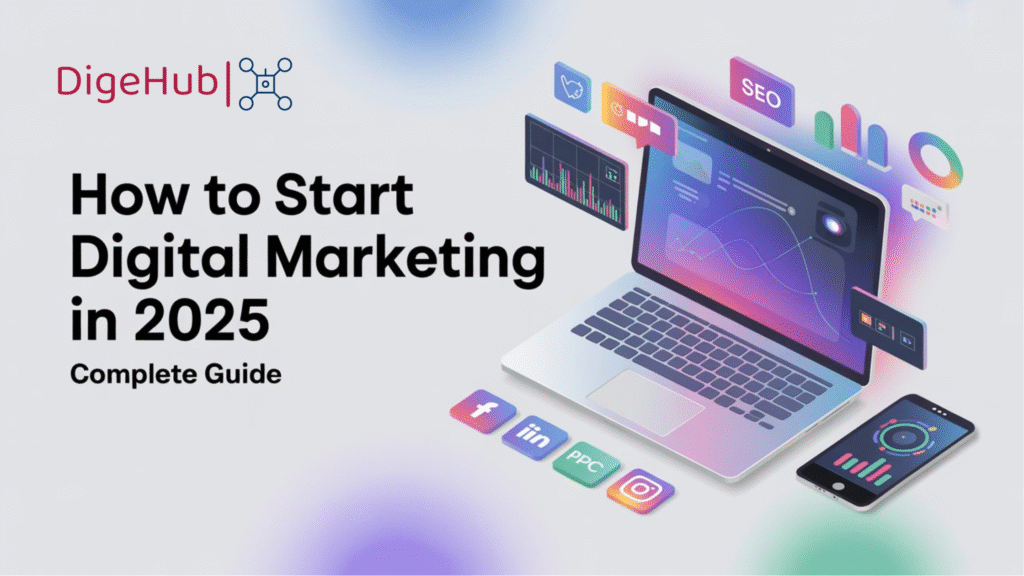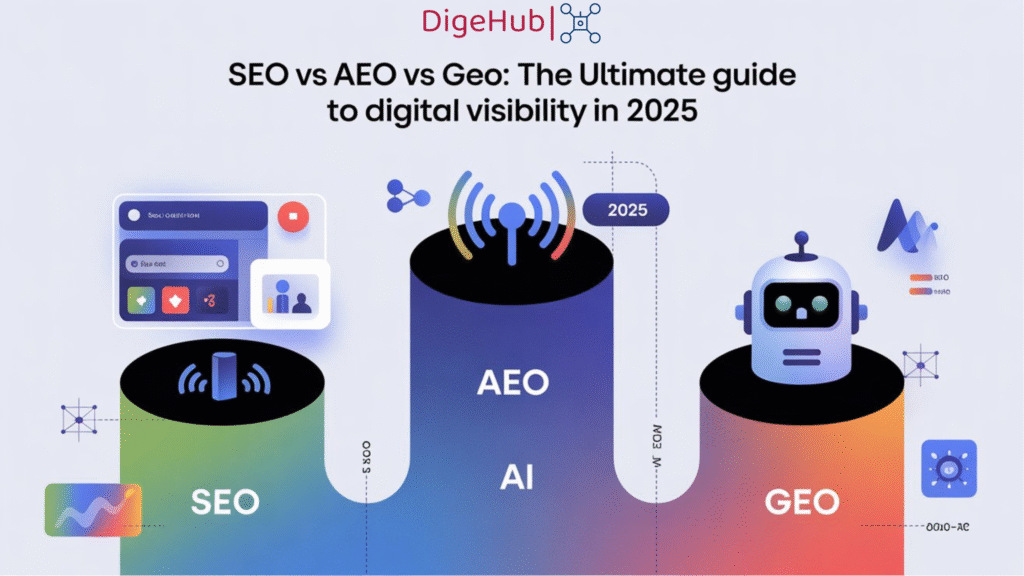Why Data Privacy Is Reshaping Marketing

Digital marketing has kinda always lived on data — from checking how people behave online to running those super personalized ads. But in 2025, data privacy isn’t just some extra thing anymore… it’s like a big deal. With more people actually caring about what happens to their info, strict global rules kicking in, and everyone demanding more honesty, brands that ignore privacy are just asking for trouble — losing trust, getting legal heat, and watching their campaigns flop.
So yeah, if your brand’s already spending on digital marketing services, now’s seriously the time to make it privacy-first. That’s how you build real, long term customer trust — not just quick clicks.
- Why Data Privacy Is Reshaping Marketing
- What Is Data Privacy in Digital Marketing?
- Why Is Data Privacy Important for Marketers?
- Key Data Privacy Regulations Marketers Must Know
- How Data Privacy Impacts Digital Marketing Strategies
- Voice of the Customer: Building Trust Through Transparency
- Practical Ways to Adapt Your Marketing Strategy for Data Privacy
- Data Privacy vs. Personalization: Striking the Balance
- Tools and Technologies to Ensure Compliance
- Best Practices for Data Privacy in SEO & Digital Marketing
- Case Studies: Brands That Mastered Privacy First Marketing
- Future of Data Privacy in Digital Marketing
- Conclusion
- FAQs
What Is Data Privacy in Digital Marketing?
Data privacy in digital marketing basically means how a business handles people’s data without crossing the line. It’s about being careful and responsible with what they collect — stuff like your email, phone number, what you click on, what you buy, and how you browse online. In short, it’s making sure personal info (PII) stays safe and isn’t used in shady ways.
Marketers shouldn’t just follow the rules on paper —they gotta be upfront too. That means being clear about what data they collect and actually giving people the power to control it, like deciding what to share and what to keep private.
Why Is Data Privacy Important for Marketers?
- Consumer Trust: People are more likely to buy from brands that respect privacy.
- Regulatory Compliance: Avoid hefty fines under GDPR, CCPA, and similar laws.
- Marketing Effectiveness: Ethical data use improves campaign quality.
- Brand Reputation: A single breach can severely damage credibility.
When marketers actually play fair and follow ethical rules, it’s like a win-win. Customers feel safer and like they’re being respected, and the brand doesn’t end up in legal trouble.
Key Data Privacy Regulations Marketers Must Know
GDPR (General Data Protection Regulation)
Applies to EU citizens. Requires clear consent, data minimization, and user rights to access or delete their data.
CCPA (California Consumer Privacy Act)
Focuses on California residents. Gives users rights to know what data is collected and opt out of sharing.
Other Global Laws
Countries like Australia, the Netherlands, and India are tightening their privacy rules too. So if a business is offering services all over the world say, cloud or digital tools — it really needs to stay aware of each country’s local laws. One slip-up can cause a lot of trouble.
How Data Privacy Impacts Digital Marketing Strategies
- Targeting’s changing big time with less of those third-party trackers around, marketers gotta depend more on first-party data now. Basically, using info that people actually share with them instead of sneaky tracking stuff.
- Analytics: Tools like Google Analytics 4 now emphasize privacy compliance.
- Email marketing now needs people to actually say “yes” before you can send them stuff, so having good SEO tools is super important to make signups easy and smooth.
- SEO & SEM: Personalization must align with consent based data.
If your campaigns involve social media marketing, privacy first approaches ensure higher engagement and compliance.
Voice of the Customer: Building Trust Through Transparency
As per a Pew Research study, more than 79% of people are actually worried about how companies handle their data. And honestly, that’s fair. Brands that are open about what they collect and how they use it — instead of hiding it in fine print are the ones people end up trusting more.
Practical Ways to Adapt Your Marketing Strategy for Data Privacy
- First Party Data Collection Use newsletters, surveys, and services solutions to gather customer insights directly.
- Consent Management Platforms (CMPs) Ensure your website complies with GDPR/CCPA by using CMPs that allow users to opt in or opt out easily.
- Privacy First Analytics Tools like Matomo or GA4 minimize reliance on third party cookies.
- Ethical Personalization Customize experiences based on data users willingly share, instead of intrusive tracking.
Data Privacy vs. Personalization: Striking the Balance
| Aspect | Data Privacy Focus | Personalization Focus |
|---|---|---|
| Data Source | First party, user consented | Third party, broad tracking |
| User Control | High (optin, opt out options) | Low to medium |
| Brand Impact | Builds trust, long term loyalty | Higher conversions short term |
| Risk Level | Low (compliant) | High (legal, trust issues) |
Tools and Technologies to Ensure Compliance
- Cookie Consent Tools (OneTrust, Cookiebot)
- Privacy Friendly Analytics (Fathom, Matomo)
- Encryption & Security (SSL, VPNs, data masking)
- Automated Compliance Checkers
For businesses managing multiple platforms like AI tools, investing in robust compliance tools is essential.
Best Practices for Data Privacy in SEO & Digital Marketing
- Always provide clear privacy notices.
- Collect only essential data.
- Regularly audit marketing tools for compliance.
- Train teams on data protection best practices.
- Leverage SEO strategies that align with first party data.
Case Studies: Brands That Mastered Privacy First Marketing
- Apple – Emphasized privacy as a brand value, increasing customer trust.
- Mozilla – Transparent data policies enhanced loyalty.
- Coca Cola – Shifted to first party data collection through loyalty apps.
Future of Data Privacy in Digital Marketing
By 2030, we may see:
- AI driven privacy compliance tools.
- Global standardized privacy laws.
- Greater consumer empowerment through blockchain based identity systems.
Businesses that integrate privacy today will stay ahead of competitors tomorrow.
Conclusion
Data privacy in digital marketing isn’t just about compliance—it’s about building trust and future proofing your brand. If you’re looking to enhance your privacy first strategies, Digehub’s digital marketing services can help you balance compliance and performance seamlessly.
FAQs
1. How does data privacy impact digital marketing?
It reduces reliance on thid party cookies, pushing marketers to adopt ethical, first party data strategies.
2. What are the best ways to collect first party data?
Through newsletters, loyalty programs, surveys, and SEO driven websites.
3. How can small businesses comply with data privacy laws?
Use consent tools, update privacy policies, and partner with agencies offering digital marketing services.
4. Is personalization still possible with strict privacy laws?
Yes—focus on consented personalization using data users willingly share.
5. What tools help ensure compliance?


